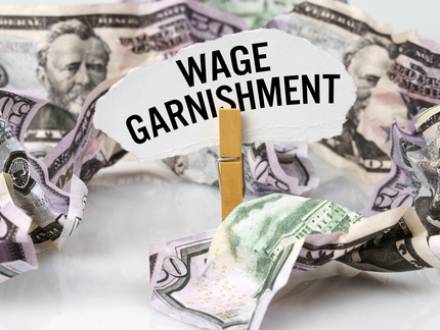What Can I Do When The IRS Is Threatening to Garnish My Wages?
 Receiving a notice from the Internal Revenue Service (IRS) threatening wage garnishment can be a frightening experience. This situation arises when you have unpaid tax debts, and the IRS decides to collect by taking a portion of your paycheck directly from your employer. However, there are steps you can take to address this issue and protect your financial stability. Based on your situation, a Texas lawyer can point you in the right direction.
Receiving a notice from the Internal Revenue Service (IRS) threatening wage garnishment can be a frightening experience. This situation arises when you have unpaid tax debts, and the IRS decides to collect by taking a portion of your paycheck directly from your employer. However, there are steps you can take to address this issue and protect your financial stability. Based on your situation, a Texas lawyer can point you in the right direction.
What to Understand About IRS Wage Garnishment
When the IRS garnishes your wages, they can legally require your employer to withhold a significant portion of your paycheck and send it directly to the IRS. This process continues until your tax debt is paid in full or alternative arrangements are made. The amount garnished depends on various factors, including your filing status and number of dependents. However, it can be substantial enough to cause significant financial hardship.
It is important to note that wage garnishment is typically a last resort for the IRS. They often prefer to work with taxpayers to find mutually beneficial solutions. By taking proactive steps and communicating openly with the IRS, you may be able to avoid or resolve wage garnishment issues.
Steps to Take When Facing IRS Wage Garnishment
The first and most important step is to not ignore the notice. Respond promptly to any IRS communications, as failing to act can result in immediate wage garnishment. Next, review your tax situation carefully. Verify the accuracy of the tax debt amount and gather all relevant financial documents. Once you have a clear understanding of your situation, explore the various payment options available:
-
Installment Agreement: Set up a monthly payment plan with the IRS.
-
Offer in Compromise: Negotiate to settle for less than the full amount owed.
-
Currently Not Collectible status: Temporarily pause collection if you cannot pay due to financial hardship.
Consider bankruptcy as a potential solution. Chapter 7 or Chapter 13 bankruptcy may help discharge or reorganize tax debts. However, this option requires careful consideration and professional guidance.
You can request a Collection Due Process hearing if you believe the garnishment is incorrect or unfair. This allows you to challenge the garnishment and present your case while proposing alternative solutions.
Preventing Future Wage Garnishment Issues
To avoid finding yourself in a similar situation in the future, implement these preventive measures:
-
File your tax returns on time, even if you cannot pay the full amount owed.
-
Contact the IRS immediately to discuss payment options if you cannot pay your taxes.
-
Keep accurate records of all your income and deductions.
-
Stay informed about tax law changes that may affect your tax obligations.
The Importance of Professional Guidance
Dealing with IRS wage garnishment can be complex and stressful. If you are overwhelmed or unsure of how to proceed, seeking professional legal advice is often the best course of action. A knowledgeable bankruptcy attorney can provide personalized guidance based on your situation and help you explore all available options. An experienced attorney can assist you in several ways:
-
Analyzing your financial situation to determine the best course of action
-
Negotiating with the IRS on your behalf
-
Helping you understand your rights and obligations
-
Guiding you through the bankruptcy process if it is deemed necessary
-
Developing a long-term strategy to prevent future tax issues
Contact a San Antonio, TX Bankruptcy Lawyer
Do not let the threat of wage garnishment paralyze you into inaction. Take control of your financial future by addressing the issue head-on. Contact a Boerne, TX bankruptcy attorney to schedule a free consultation to help you navigate this challenging situation and work towards a resolution that protects your rights. Call Law Offices of Chance M. McGhee at 210-342-3400 to start the process.






